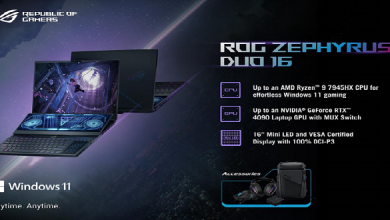The rise of blockchain and cryptocurrencies has reshaped how industries operate, particularly in the hi-tech sector. These innovative technologies offer new ways to handle transactions, enhance security, and create decentralized systems that are changing traditional business models.
From financial systems to online entertainment, blockchain and cryptocurrencies have established themselves as significant players in the modern technology landscape. This article explores their role in digital innovation, the transformation of industries through blockchain, the impact of smart contracts, and how Bitcoin casinos are revolutionizing online gambling.
The Role of Cryptocurrencies in Driving Digital Innovation
Cryptocurrencies, like Bitcoin and Ethereum, have become much more than digital currencies. They are driving innovation across multiple sectors by enabling secure and decentralized financial transactions. These digital assets have created a system where middlemen like banks or payment processors are no longer necessary, allowing for faster and cheaper transactions.
One of the most prominent examples of innovation is the rise of decentralized finance (DeFi). DeFi platforms use cryptocurrencies to provide financial services like lending, borrowing, and trading without the need for traditional banks. This has opened up opportunities for people who previously lacked access to financial systems. Additionally, cryptocurrencies are powering new business models, such as tokenized crowdfunding, where companies raise capital by issuing digital tokens.
How Crypto Casinos Are Transforming Online Gambling Experiences
The online gambling industry is one of the sectors most significantly impacted by cryptocurrencies, particularly bitcoin casinos. These platforms allow users to play using Bitcoin and other cryptocurrencies, providing a host of advantages over traditional online casinos. For example, players can use crypto slots and other benefits of such online casinos.
One of the biggest benefits is enhanced privacy. According to Austin Reynolds, the Senior Editor at Casino Bonuses Now, “Crypto & Bitcoin casinos do not require players to share sensitive personal or financial information, offering a level of anonymity that many users find appealing.” Additionally, such transactions are faster and often come with lower fees compared to traditional payment methods.
Blockchain technology also ensures fairness and transparency in games. Many Crypto & Bitcoin casinos use “provably fair” systems, which allow players to verify the fairness of each game outcome. This builds trust and sets these platforms apart from traditional online casinos.
The global nature of cryptocurrencies makes Crypto casinos accessible to players from countries with restrictive gambling regulations. This has expanded the reach of online gambling and made it more inclusive. As blockchain technology continues to evolve, bitcoin casinos are likely to adopt even more innovative features, further enhancing the player experience.
How Blockchain Technology Is Revolutionizing Hi-Tech Industries
Blockchain technology is the foundation of cryptocurrencies, but its applications go far beyond digital money. It is being used to solve some of the biggest challenges in hi-tech industries, such as data security, transparency, and scalability.
One of the key advantages of blockchain is its ability to create immutable records. This feature is critical for industries like healthcare, where maintaining accurate and tamper-proof patient records is essential. Similarly, supply chain management has benefited from blockchain’s ability to track products at every stage, ensuring transparency and reducing fraud.
The gaming industry is also exploring blockchain to create secure and decentralized marketplaces where players can buy, sell, and trade in-game assets. These marketplaces operate on blockchain, ensuring that ownership and transactions are both secure and transparent.
The Impact of Smart Contracts on Hi-Tech Business Models
Smart contracts are self-executing agreements with terms directly written into code. These contracts automatically execute when predefined conditions are met, reducing the need for intermediaries and increasing efficiency.
One of the most notable impacts of smart contracts is in the automation of processes. For example, in real estate, smart contracts can streamline property transactions by automating payments and transferring ownership once all conditions are satisfied. This reduces paperwork and speeds up the process.
In the insurance industry, smart contracts enable automatic claims processing. If a claim meets the conditions set in the contract, the payout is automatically triggered without requiring manual intervention. This not only saves time but also reduces errors and fraud.
Smart contracts are also powering decentralized applications (dApps) across various industries, offering innovative solutions that simplify complex processes and lower operational costs.
Conclusion
Blockchain and cryptocurrencies have proven to be transformative forces in the hi-tech world. By enabling decentralized systems, they have driven digital innovation, solved long-standing challenges, and introduced new business models. Blockchain technology is revolutionizing industries like healthcare, supply chain management, and gaming, while smart contracts are automating processes across various sectors.
In the online gambling space, Crypto & Bitcoin casinos are redefining how people play, offering privacy, fairness, and accessibility. These trends highlight how blockchain and cryptocurrencies are not just trends but foundational technologies that will continue to shape the future of the hi-tech market.
As more industries adopt these technologies, the potential for growth and innovation is limitless. Whether it’s through faster transactions, secure systems, or entirely new business models, blockchain and cryptocurrencies are paving the way for a more connected and efficient digital future.






